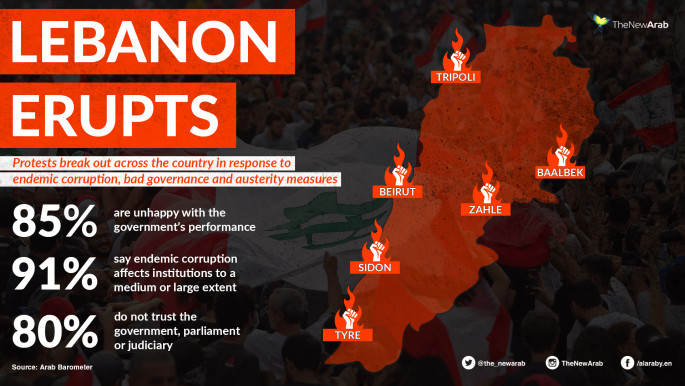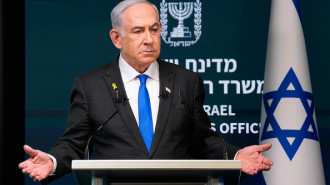Singer Ragheb Alama shocks Lebanon, saying country needs a president 'like MbS'
His remark comes after the singer was criticised for accepting an invitation to perform onstage in Saudi Arabia, where MbS has launched a brutal crackdown on opponents in the country, jailing activists, religious leaders and businessmen.
Alama praised the kingdom's de facto ruler, known for his ruthless grip on power in his apparent anti-corruption drive, which critics say is a way of centralising powers in the crown prince's hands.
The singer said Lebanon was going through "hard times" and that he wished peace and stability for his beloved country.
A leaderless pan-sectarian movement has swept through the Mediterranean country since 17 October, prompting the resignation of Prime Minister Saad Hariri's government.
Demonstrators are demanding a complete overhaul of the political class and for a new government of technocrats not affiliated with traditional parties to take over.
Protesters have decried everything from unemployment to chronic power cuts and say they are fed up with the same families dominating government institutions since the end of the 1975-1990 civil war.
The protests have been largely peaceful, but two people have been killed since they started.
 |
| Click to enlarge |
In November 2017, MbS ordered the detention of over 200 top Saudi officials and businessmen in a purported anti-corruption drive in the country.
Experts said it was a way of consolidating his grip on power by securing cash from "shake downs" and eliminating potential rivals.
The 2017 anti-corruption sweep saw hundreds of leading royals, officials and business leaders detained at the Ritz hotel, with at least one person allegedly dying under torture.
Riyadh announced an end to its high-profile corruption purge in January this year, but some of those arrested remain in detention nearly 18 months later, without any clear legal basis.
Saudi Arabia netted around $106.6 billion during the corruption purge after forcing settlements with detainees which included cash, real estate, businesses and securities.
In the early days of the crackdown more than 17 detainees were hospitalised for physical abuse.
Analysts and critics said it was also a way for the prince to sideline potential rivals and consolidate power as he prepares to inherit the throne from his father, King Salman.







 Follow the Middle East's top stories in English at The New Arab on Google News
Follow the Middle East's top stories in English at The New Arab on Google News

![Israeli troops Lebanon [Getty]](/sites/default/files/styles/image_330x185/public/2175253339.jpeg?h=a5f2f23a&itok=OAKHr8q-)
![Donald Trump [Getty]](/sites/default/files/styles/image_330x185/public/2183218031.jpeg?h=a5f2f23a&itok=qm9RQCxq)